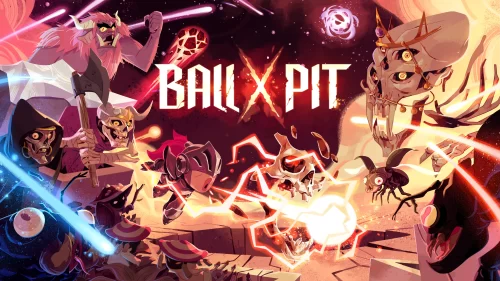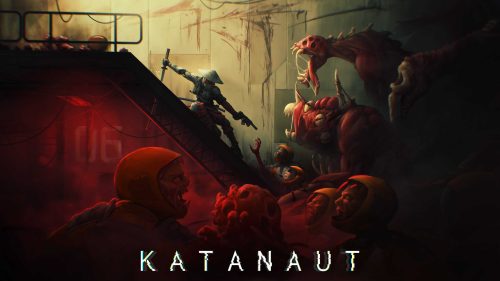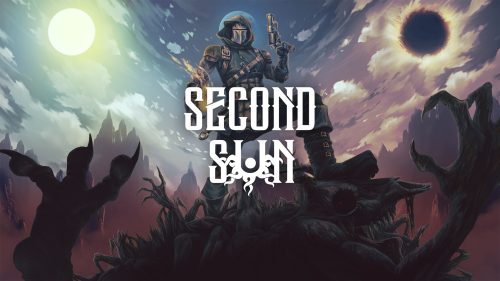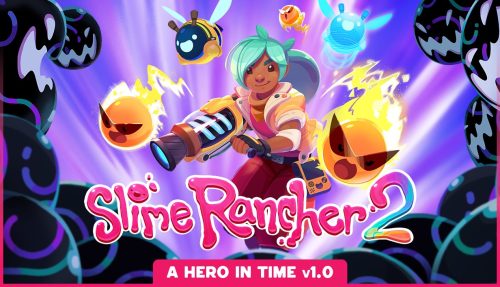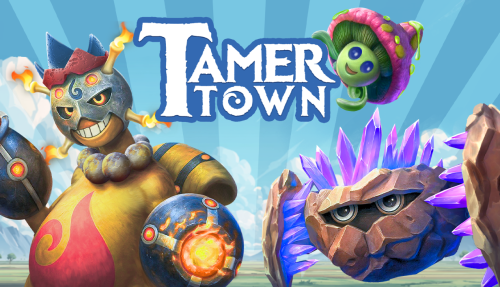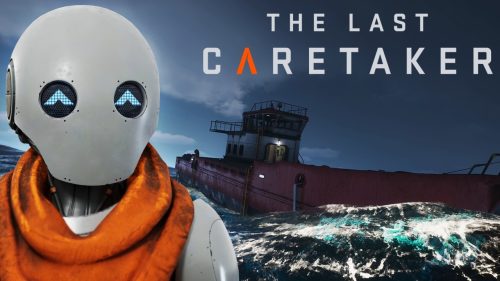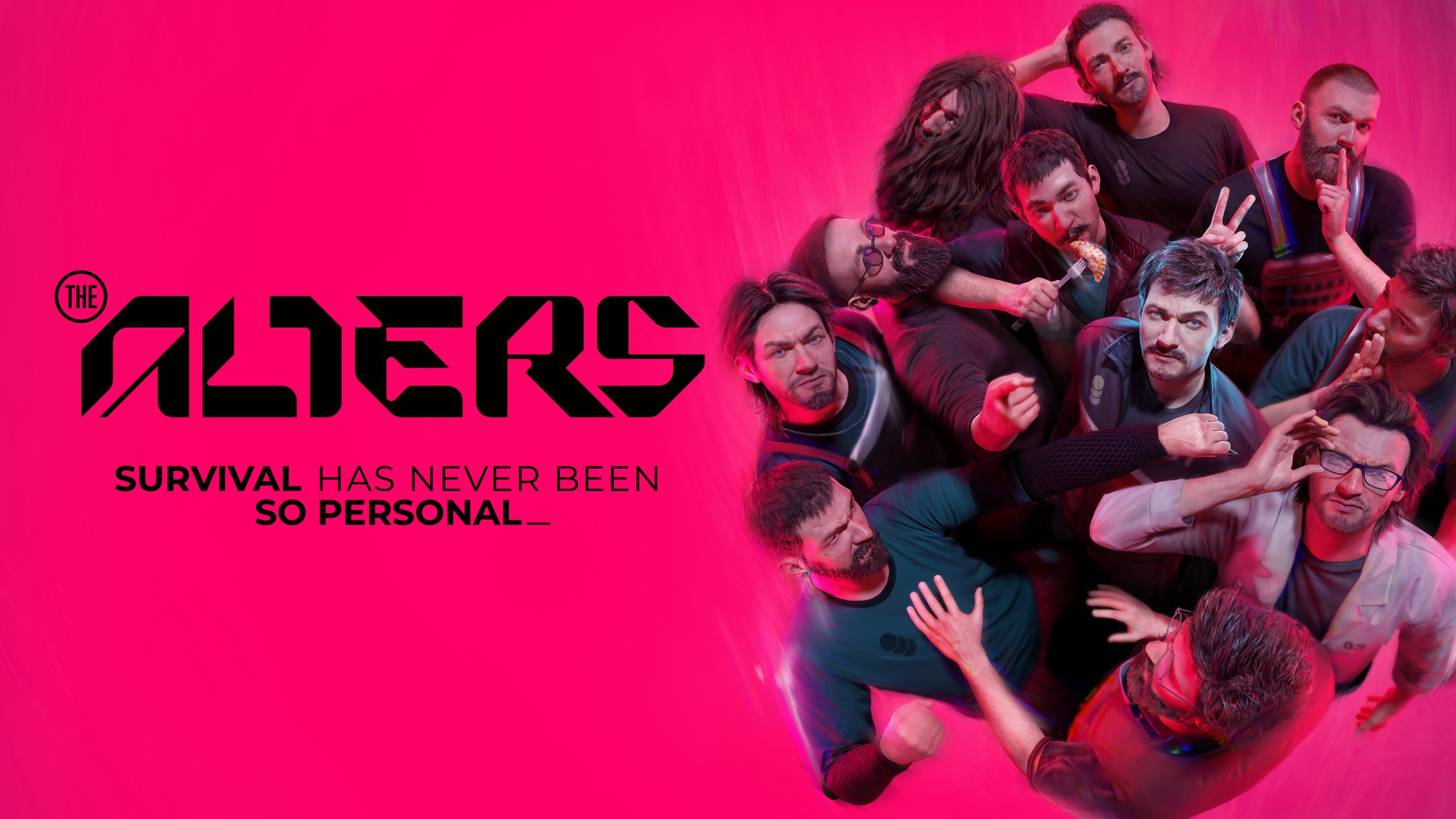
A new world to explore, filled with problems to solve, following the loss of the entire crew at the moment of impact with this unknown planet. A rather bleak premise for players, yet one that sparks a strong sense of discovery that is hard to ignore.
The Alters was one of the titles that left the biggest impression on me during last year’s Steam Next Fest. I usually follow several projects from their early stages through to release, but somehow, The Alters carved out a special place in my imagination. Not only because of its immersive atmosphere, but mainly due to the need to find new allies to face the countless challenges of landing on and surviving an alien world. How does one deal with all of this when there’s no one left but Jan Dolski, the protagonist of this adventure?

The Alters is a deeply introspective sci-fi survival game by 11 Bit Studios, the creators of This War of Mine and Frostpunk. Set in a hostile, alien environment, the game blends time-sensitive survival mechanics with a rich narrative that explores identity, regret, and the many paths life could have taken.
It all begins with the impact of the shuttle that was supposed to transport Jan and his team to the planet’s surface. The problem? None of his crew members survived. As the planet has dangerously high radiation levels, it’s imperative to quickly reach the pre-established base: a gigantic circular structure with a central platform that houses various modules dedicated to different functions, sleeping quarters, research labs, quantum computers, and more.

In theory, the mission would be simple: retrieve a new component, study it, and eventually begin producing… clones? Yes, Rapidium allows for the cloning of any form of life, as long as a fragment of DNA is available. And this is where the core of the player’s choices begins to take shape. Sooner or later, creating clones of oneself becomes inevitable, after all, there’s no other viable DNA sample… except that of a sheep. And thus, Dolly is born, the companion for your journey (though her role is mostly limited to a few affectionate moments).
Each clone presents distinct personality traits, needs, and skill sets. The first step is to create a clone with mechanical skills, as the shuttle is damaged and unable to move. This initial act is essential for resource gathering and for building systems that will allow further extraction and survival. But more on that later.
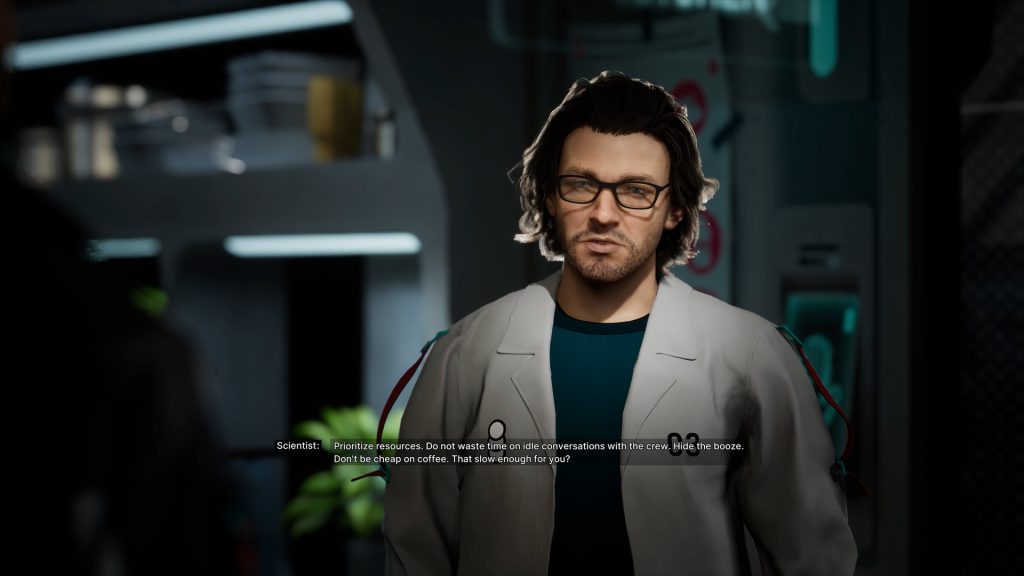
The radiation threat is constant. The planet orbits a system with three extremely powerful suns. Radiation levels can be stabilized inside the station using shielding mechanisms, but these require batteries, and batteries run out. It creates a vicious cycle: to survive, you need resources; to get resources, you need to survive.
Still, survival isn’t the game’s only goal. The Alters is not a traditional survival game — it’s a narrative-driven adventure where choices carry real weight. There are multiple branching paths depending on your decisions, and they shape how you interact with the different versions of Jan.
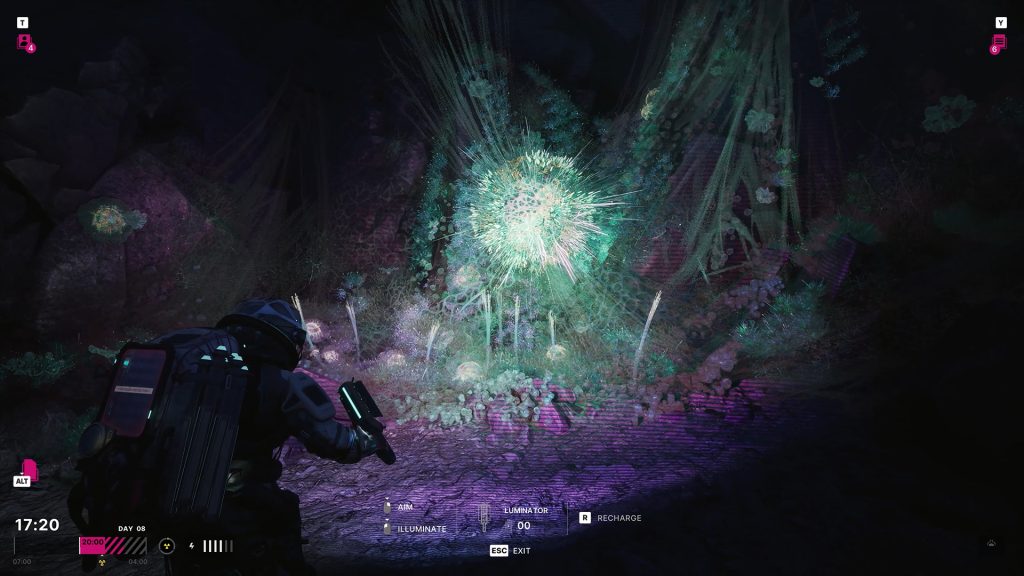
This is where the game truly shines. Each new clone represents a possible version of Jan, as if you’re navigating a multiverse of possibilities. It’s a fascinating concept that kept me glued to every line of dialogue and every line delivered so brilliantly by Alex Jordan.
The core gameplay revolves around exploring the planet during brief safe windows, gathering resources, and building modules to keep the base operational. Alters play vital roles, research, engineering, farming, cooking, among others, but they also demand attention and empathy. You’re not just giving orders; you’re engaging with fractured versions of yourself, confronting what you might have been.
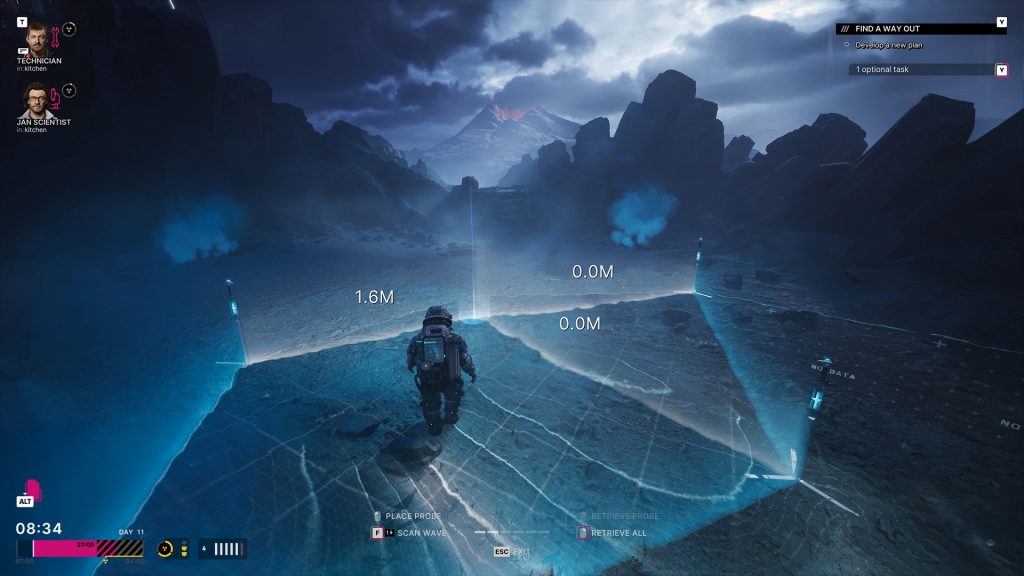
The game’s philosophical depth is one of its strongest points. It doesn’t just flirt with complex themes — it makes you live through them. Every decision to create an Alter is, essentially, an act of introspection: “What if I had taken a different path?” And when one of those clones begins to grow resentful or unstable, it’s not just a gameplay consequence, it’s an emotional reckoning.
This also highlights the game’s replayability. Across the different sessions I played, one on Steam, the other on PlayStation 5, it was fascinating to see how different choices led to different outcomes. While this isn’t necessarily platform-specific, it clearly demonstrates how replayability is one of this game’s key strengths.
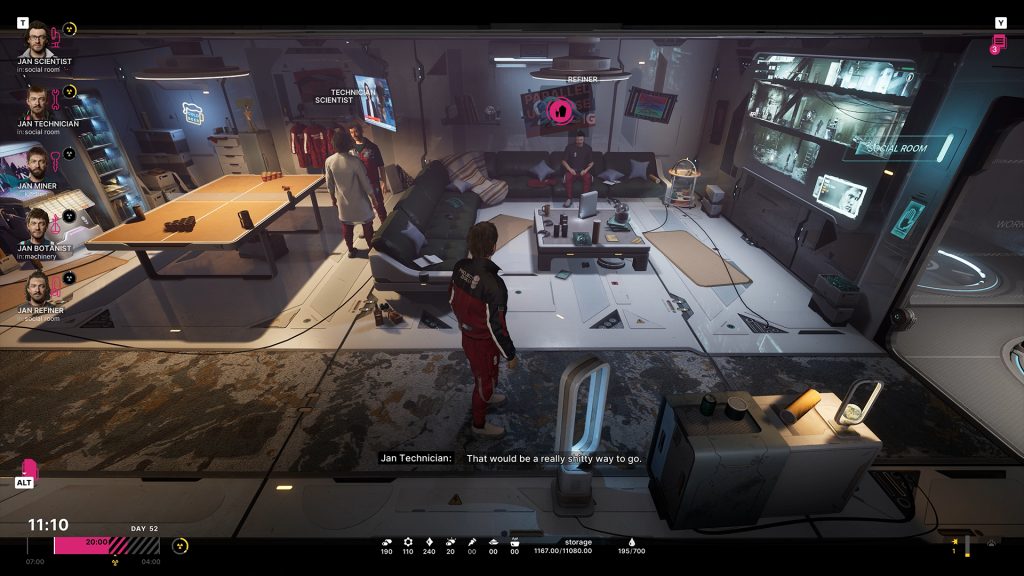
Visually, The Alters is striking. The environments, though minimalist, convey a constant sense of isolation and threat. The characters are superbly animated and acted. It’s especially impressive that all the Alters are voiced by the same actor, with nuanced performances that truly make each one feel like a distinct version of the same man.
Performance-wise, the game is flawless. Both on PC and PlayStation 5, it ran smoothly without any notable technical issues.
The Alters is a captivating and emotionally resonant experience, built around a truly original premise. It stands out for its narrative depth, posing difficult questions about identity and purpose, even if it occasionally suffers from slow pacing or repetitive tasks. If you don’t mind a bit of repetition and enjoy games that make you think and feel, this is undoubtedly one of the most memorable indie titles of 2025. A strong contender for game of the year.

[Note: Review based on the final PC version of the game, kindly provided by Evolve PR via PressEngine.]

